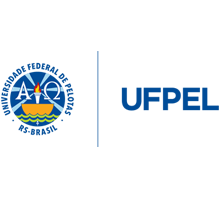Universidade Federal de Pelotas

The Federal University of Pelotas (UFPel) was one of the first Brazilian universities to include green chemistry in the curriculum of its chemistry courses. In addition, the industrial and bachelor’s degrees in chemistry have in their curriculum several disciplines focused on sustainable chemistry, including the use of biomass as a raw material, clean organic synthesis and renewable energies. As an independent discipline, Green Chemistry has been present in UFPel’s chemistry courses since 2004 at the undergraduate level, and since 2011 at the graduate levels (Master and PhD).
Chemistry B.S., Chemistry M.S., Chemistry, Ph.D., Pharmaceutical, Biochemistry M.S. and Ph.D., Food Chemistry B.S., Forensic Chemistry B.S., Industrial Chemistry B.S.
General Chemistry, Organic Chemistry, Inorganic Chemistry. Green Chemistry stand-alone course, Faculty Research, Student Research. Students are also enrolled by maintaining he WWVERDE website, Twitter, Facebook, and Instagram networks.
No.
In the medium term, create a Toxicology course and/or insert Toxicology topics into chemistry courses.
Journals: J. Chem. Educ.; Green Chem.; Green Chem. Lett. Rev.; Curr. Green Chem.; ChemSusChem, etc. Books: Real-World Cases in Green Chemistry; Green Chemistry: Theory and Practice; Eco-Friendly Synthesis of Fine Chemicals; Review articles and book chapters of several journals and books. Magazines: Chem. Eng. News, World Chem. Websites: https://www.epa.gov/greenchemistry; https://www.acsgcipr.org/, among others.
In Portuguese – Website: WWVERDE; Journals: Quím. Nova; Quím. Nova Esc.; Rev. Virtual Quím.
